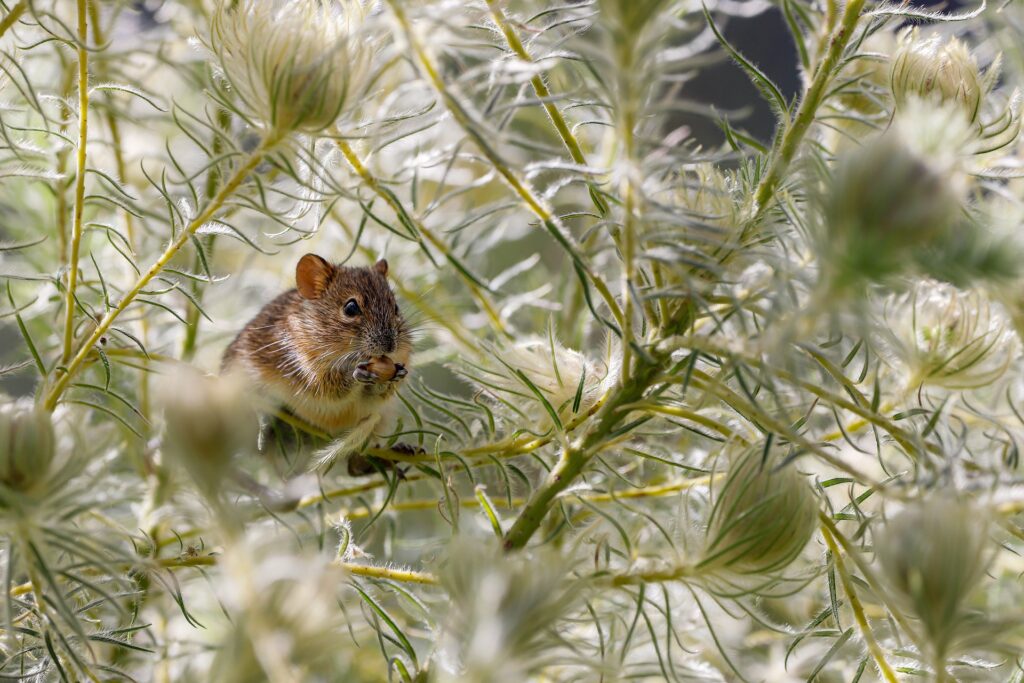When it comes to reaching new heights, it’s hard to find a creature that is as adept at jumping as a flea. Because fleas are such great jumpers, many people think fleas are capable of flight. While fleas don’t have wings, they are able to catapult themselves 40 to 100 times their body length in distance and up to 2 feet in height. To say this is an impressive feat of athleticism would be an understatement. It’s even more impressive when you put it in the context of a human being. For example, if a person with a height of 6 ft. were to be able to jump like a flea, he or she would be capable of reaching a distance of 336 feet. In other words, they’d basically be a superhero.
How do Fleas Jump so Far?
Without wings to help propel them, you may be wondering how fleas are even able to jump so high. Well, it all boils down to a flea’s anatomy and their ability to push themselves off the ground using an exceptional amount of force. In other words, fleas put in a lot of legwork to get to where they want to go.
Like other insects, a flea has three pairs of legs, with the back pair being longer than the other two. A flea’s leg is made up of 4 segments – the coxa, femur, tibia and tarsus. The top portion of the leg, or coxa, attaches the flea’s leg to its body. Below the coxa is the femur, which contains a large portion of muscle and connects the trochanter (the flea’s knee) to the tibia. The tarsus, found below the tibia, can be thought of as a flea’s toes.
While each segment plays an important role in a flea’s ability to jump, fleas rely on an elastomeric protein, resilin, to propel themselves so high and far. Resilin is like an elastic pad of stretchy protein, which extends and contracts when the flea jumps and lands. Resilin’s elasticity allows fleas to exert about 100x more power than if they were using muscle alone. As a result, fleas can catapult themselves off a surface quickly and with a lot of control.
Will Fleas Jump on Humans?
While humans aren’t a flea’s first choice when it comes to food, they will jump on a human if better options aren’t available. More often than not though, a flea is going to look for a furry animal to feed on. An animal’s fur is the perfect place for fleas to lay low while staying well fed. Because of these reasons, our furry friends are prime targets for fleas. However, it is possible for non-pet owners to get fleas in their homes. For instance, if you have a rodent infestation, then a rat or mouse may introduce fleas into your home.
Just as with wild animals or pets, fleas make their way on to humans by jumping. If you have fleas on you, you will more than likely experience small, red bites on your ankles or lower legs. These tiny bites are usually surrounded by a “halo” and are very itchy. You should try to avoid itching your bites and treat them with anti-itch cream. If you experience a large amount of flea bites, you should seek medical attention.
Why do Fleas Jump So High?
Fleas demonstrate a remarkable ability to jump great heights and distances; a skill that’s essential for their survival and propagation. When exploring how do fleas jump so high or how far can a flea jump, it’s crucial to acknowledge the combination of their lightweight bodies and powerful legs which allows them to leap more than 150 times their own height. This astonishing leap is not just for show—it enables fleas to escape predators, move between hosts, and spread through environments effectively. While all fleas possess the ability to jump, not all species achieve the same heights, with some fleas that don’t jump relying more heavily on crawling. Nevertheless, the agility displayed by these tiny insects is a major reason why they are such formidable pests.
How to Prevent Fleas from Jumping on You?
Instead of relying on flea bombs or a DIY pest control method, your best bet is to call a professional pest control company such as Aptive. Fleas are quite resilient and can multiply quickly. As a result, it’s in your best interest to hire a pest control service before the problem gets out of control.
Aptive pest professionals know the best techniques and treatments to take care of your flea problem. Aptive professionals will provide professional, effective pest control methods that will rid your home of fleas and other pests. Our pest technicians will also provide you with helpful prevention tips to protect your home from fleas in the future.
When it comes to preventing fleas, the best strategy is vigilance. If you own pets, you should be checking them regularly for fleas. The earlier you catch fleas, the easier it is to control them and get rid of them.
If you are experiencing a flea infestation or simply have a question, call your local Aptive Environmental branch today.









